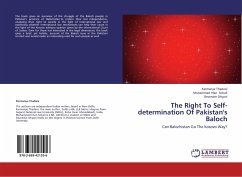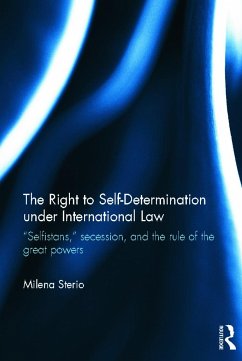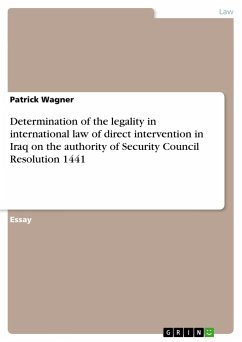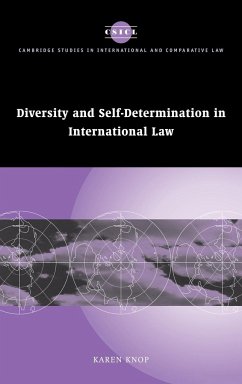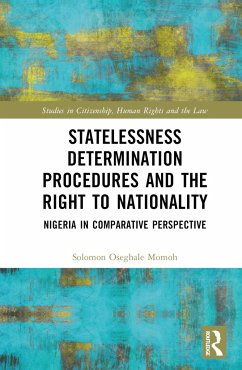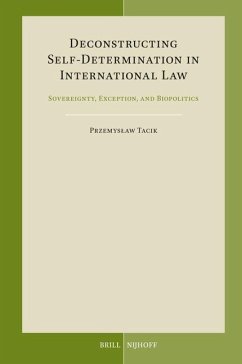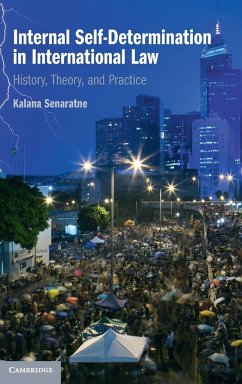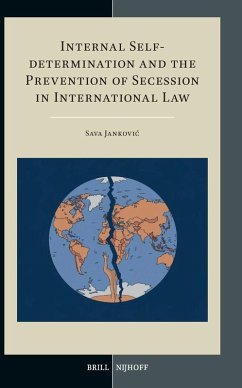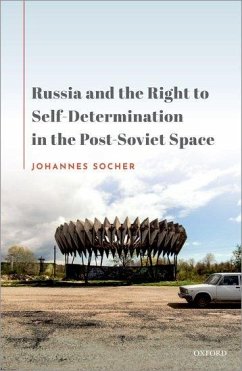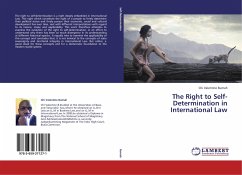
The Right to Self-Determination in International Law
Versandkostenfrei!
Versandfertig in 6-10 Tagen
33,99 €
inkl. MwSt.

PAYBACK Punkte
17 °P sammeln!
The right to self-determination is a right deeply embedded in International Law. This right which constitute the right of a people to freely determine their political status and freely pursue their economic, social and cultural development has over time, met with different interpretations with regard to its nature, scope and applicability. This work therefore attempts to examine the evolution of the right to self-determination, in an effort to understand why there has been so much divergence in its understanding at different historical epochs. It equally tries to examine the applicability of t...
The right to self-determination is a right deeply embedded in International Law. This right which constitute the right of a people to freely determine their political status and freely pursue their economic, social and cultural development has over time, met with different interpretations with regard to its nature, scope and applicability. This work therefore attempts to examine the evolution of the right to self-determination, in an effort to understand why there has been so much divergence in its understanding at different historical epochs. It equally tries to examine the applicability of this concept and concludes that, it is not inimical to the concepts of state sovereignty and territorial integrity in International Law. But rather, a good cloak for these concepts and for a democratic foundation to the modern statist system.



